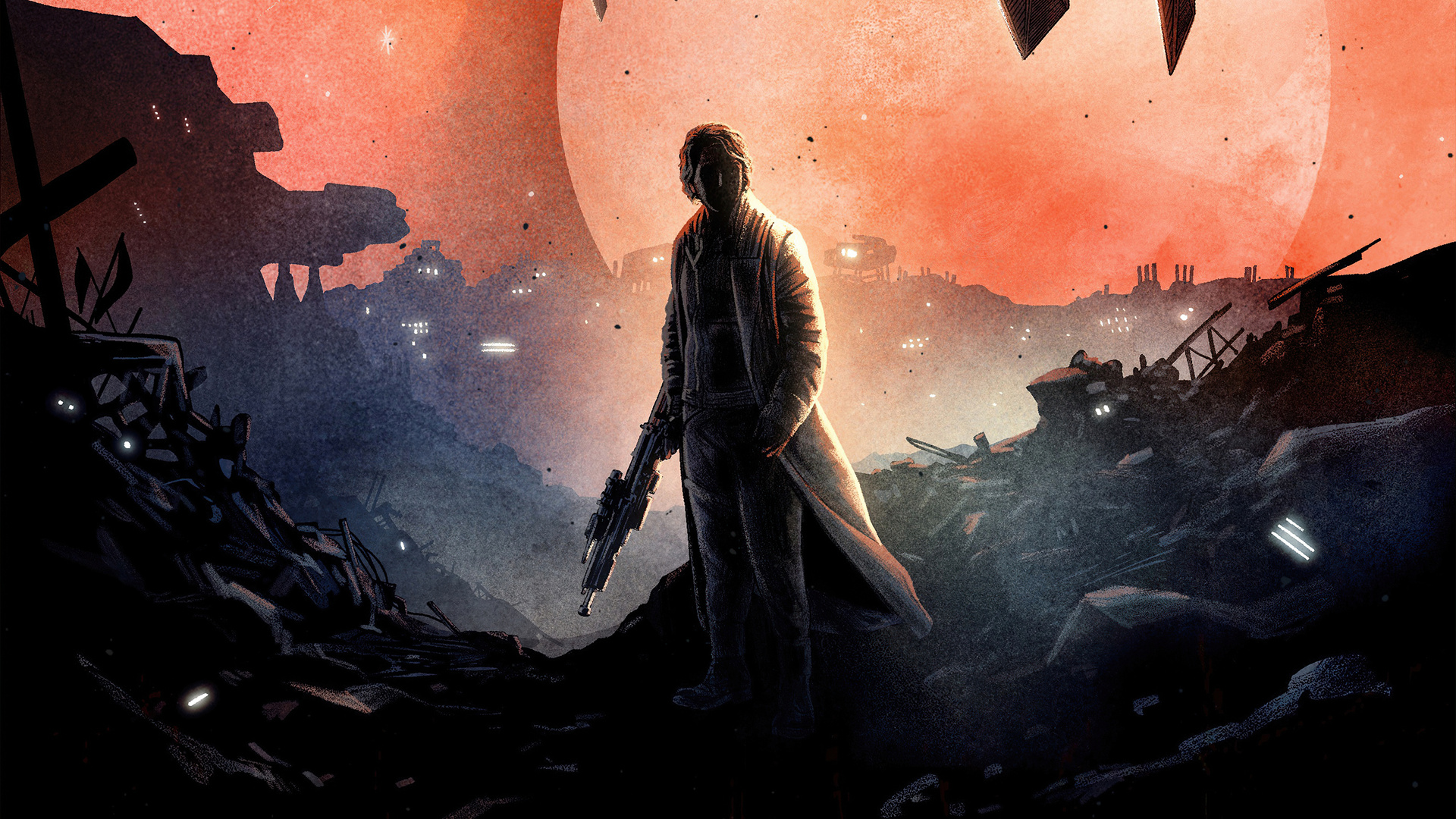Cancellation Of Star Wars: Andor Book: The AI Factor

Table of Contents
The Rise of AI in Book Publishing
The publishing world is undergoing a digital transformation, and AI is at the forefront of this revolution. Its impact is being felt across various stages of the publishing process, from initial concept to final publication.
AI-Generated Content and its Impact
AI writing tools are increasingly being used for a range of tasks, from generating initial drafts and summaries to assisting with editing and proofreading.
- Examples of AI writing tools: Jasper, Sudowrite, Copy.ai are just a few of the many tools now available to publishers.
- Potential benefits: AI can significantly reduce costs and increase the speed of content creation. Market research can be streamlined through AI-powered analysis of reader data and trends.
- Potential drawbacks: AI-generated content often lacks originality and the unique voice that defines a truly compelling story. Ethical concerns around plagiarism and the potential displacement of human writers are also significant issues. The risk of homogenization of style and a loss of distinctive authorial voices is also a valid concern. The emotional depth and nuance that comes from human experience is often missing in AI-generated content.
AI's Role in Predicting Book Success (or Failure)
Publishers are increasingly relying on AI-powered data analysis to predict the commercial success of a book before investing heavily in its production and marketing.
- Examples of data analysis and predictive algorithms: AI can analyze sales data from similar books, social media trends, and reader reviews to forecast potential market demand.
- Potential biases in data: The algorithms used are only as good as the data they are trained on. Biases in the data can lead to inaccurate predictions and potentially unfair outcomes.
- Limitations of predicting reader reception: While AI can identify trends, it struggles to predict the unpredictable nature of reader taste and the often-irrational factors that drive book sales. The unique appeal of a story and its emotional resonance are hard to quantify. Could unfavorable AI-driven market analysis have influenced the decision to cancel the Andor book, especially if the projected sales figures were deemed too low to justify the investment?
Speculative Scenarios: Did AI Influence the Andor Book's Fate?
While we lack concrete evidence, it's interesting to speculate on how AI might have (directly or indirectly) played a role in the rumored cancellation.
Scenario 1: Direct AI Involvement
Perhaps AI was directly involved in the creative process.
- Speculation on unsatisfactory AI-generated content: Imagine a scenario where AI was used to generate a significant portion of the initial draft. If the output lacked the depth or understanding of the Andor universe, the project might have been deemed unsuitable for publication. The nuance and intricate details that make the Andor series so engaging are difficult for an AI to replicate.
- Negative AI-driven market analysis: AI-powered market analysis might have predicted poor sales, leading the publisher to cancel the project before significant investment was made.
Scenario 2: Indirect AI Influence
AI might have had an indirect but still powerful influence.
- The chilling effect on human creativity: The rise of AI-generated content might have made publishers more risk-averse. Facing uncertainty about the market's reaction to AI-created works, they may have prioritized safer, more predictable projects. This might have resulted in the cancellation of the Andor book, even if it wasn’t directly tied to AI involvement in its production.
The Future of Star Wars Literature and AI
The integration of AI into publishing is inevitable, but navigating this technological shift requires careful consideration.
Navigating the AI Revolution in Publishing
The future of Star Wars literature and science fiction, as with all genres, will likely involve a complex interplay between human authors and AI tools.
- Potential collaborations: Authors could use AI for brainstorming, research, and even editing, but the creative vision and storytelling will remain firmly in human hands. AI tools might become powerful collaborators, augmenting human capabilities rather than replacing them.
- New creative avenues: AI could even open up new creative avenues, such as interactive narratives or personalized storytelling experiences.
- The need for ethical guidelines: Clear ethical guidelines for using AI in storytelling are crucial.
The Importance of Human Creativity in Storytelling
Despite the capabilities of AI, the irreplaceable value of human creativity in storytelling remains paramount.
- Emotional depth and nuance: AI can mimic human language, but it often lacks the emotional depth and nuanced understanding that comes from human experience.
- The unique authorial voice: A skilled author brings a unique voice and perspective to their work, something currently beyond the capabilities of AI. The distinctive voice of an author is a critical part of the appeal of their work, creating a relationship with the reader that AI cannot replicate. This personal touch is crucial, particularly in beloved franchises like Star Wars.
Conclusion
The rumored cancellation of the Star Wars: Andor book remains shrouded in uncertainty. However, the increasing influence of AI in publishing is undeniable, raising questions about its potential impact on creative industries. While it is highly speculative to directly connect AI to this specific cancellation, the discussion highlights the complexities and challenges facing the publishing industry as it navigates the AI revolution. The future of Star Wars literature, and the broader landscape of storytelling, will depend on finding a balance between leveraging AI's potential and preserving the vital role of human creativity.
What are your thoughts on the impact of AI on the future of Star Wars Andor novels and other book projects? Let's discuss the future of Star Wars storytelling in the face of AI’s growing influence.

Featured Posts
-
 Finding The Best Stake Alternatives Top Crypto Gambling Sites For 2025
May 17, 2025
Finding The Best Stake Alternatives Top Crypto Gambling Sites For 2025
May 17, 2025 -
 Are Highly Requested Fortnite Skins Returning To The Item Shop 1000 Days Later
May 17, 2025
Are Highly Requested Fortnite Skins Returning To The Item Shop 1000 Days Later
May 17, 2025 -
 Liverpools 51m Pursuit Of German Midfielder Heats Up
May 17, 2025
Liverpools 51m Pursuit Of German Midfielder Heats Up
May 17, 2025 -
 Tuerkiyes Subat Ayi Uluslararasi Yatirim Pozisyonu Verileri Detayli Analiz
May 17, 2025
Tuerkiyes Subat Ayi Uluslararasi Yatirim Pozisyonu Verileri Detayli Analiz
May 17, 2025 -
 The Jalen Brunson Injury A Critical Test For The Knicks Depth
May 17, 2025
The Jalen Brunson Injury A Critical Test For The Knicks Depth
May 17, 2025
Latest Posts
-
 Taylor Swift Taylors Version Albums Ranked From Worst To Best So Far
May 18, 2025
Taylor Swift Taylors Version Albums Ranked From Worst To Best So Far
May 18, 2025 -
 This Weeks Must Hear Albums Ezra Furman Billy Nomates And Damiano David
May 18, 2025
This Weeks Must Hear Albums Ezra Furman Billy Nomates And Damiano David
May 18, 2025 -
 New Music Friday Ezra Furman Billy Nomates And Damiano David
May 18, 2025
New Music Friday Ezra Furman Billy Nomates And Damiano David
May 18, 2025 -
 Damiano Davids Next Summer Your Streaming Guide
May 18, 2025
Damiano Davids Next Summer Your Streaming Guide
May 18, 2025 -
 Discover This Weeks New Music Ezra Furman Billy Nomates And Damiano David
May 18, 2025
Discover This Weeks New Music Ezra Furman Billy Nomates And Damiano David
May 18, 2025
